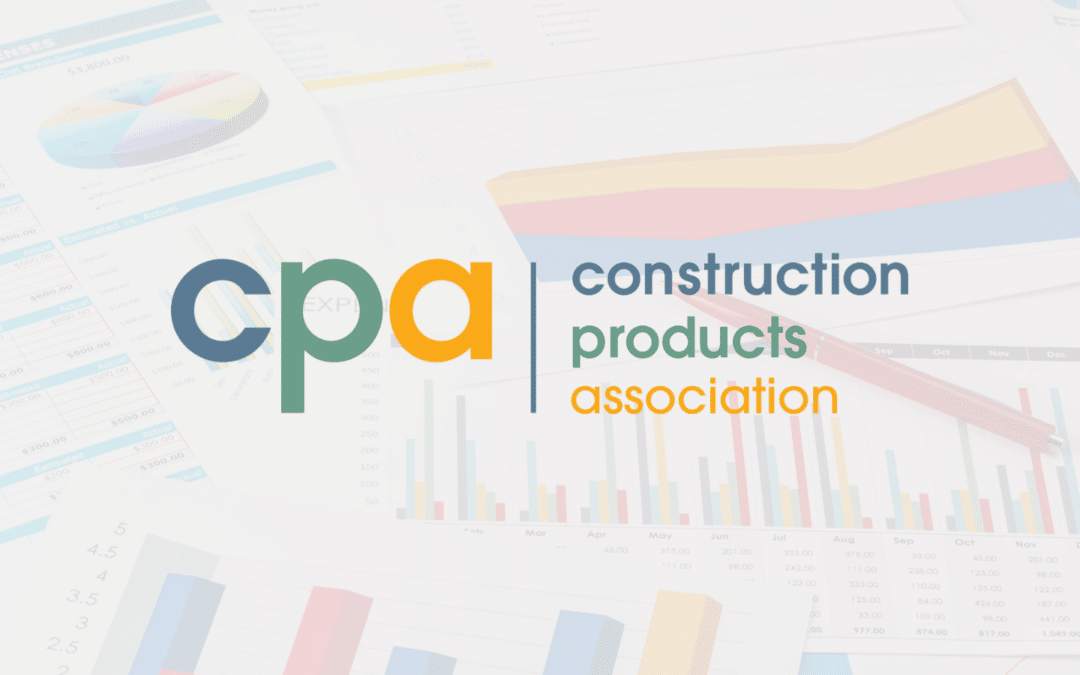
by Clair Mooney | Sep 2, 2022 | Skills
A great way to launch a career in the sector is by one of the many Apprenticeships on offer. Age is not a restriction for career changers and there are opportunities to upskill in various occupations. There are more than 640 apprenticeships approved in England by employers, meaning someone could pursue a career in anything from Dryliner to Contracts Manager. The National Apprenticeship Service has some great advice for employers including clear information on costs. Take a look at the FIS Apprentice – Guidance for Employers and if you need information, advice or guidance call FIS on 0121 707 0077 or email info@thefis.org
Transfer and Receive Apprenticeship Levy
Employers in England that pay the apprenticeship levy can transfer their unused apprenticeship funds to help other organisations pay for apprenticeship training. The employer that receives the funds can only use them to pay for apprenticeship training and assessment. You can transfer up to 25% of your apprenticeship funds.
Prior to sign up you will need an apprenticeship service account
Create an account to manage apprenticeships – Manage apprentices (manage-apprenticeships.service.gov.uk)
Transferring your apprenticeship levy to another business – GOV.UK (www.gov.uk)
An apprenticeship levy paying employer can transfer up to 25% of their annual levy funds to another employer to pay for the training and assessment costs for apprenticeship standards. Transfers can support new apprenticeship starts, this includes existing staff starting an apprenticeship or where the apprentice’s employer has changed. Transfers may be used to support the skills gaps and shortages within locations or sectors.
Receive a levy transfer from another business to fund an apprenticeship – GOV.UK (www.gov.uk)
Transfers is one way of receiving funding to support the costs of apprenticeship training and assessment. By receiving a transfer, if you do not pay the levy then you will save the 5% employer co-investment. Also, transfers do not count towards reservation of funds. Apprenticeships are not just for new employees; they are available to upskill existing employees too.
If you need assistance to transfer, pledge or secure apprenticeship funds for taking on an apprentice give FIS a call on 0121 707 0077 or email info@thefis.org

by Clair Mooney | Sep 2, 2022 | Technical
FIS has produced guidance that is designed to support and enable better understanding and engagement with BS EN 13964.
The guidance note aims to break down the standard into bite sized sections making it easier to understand to those who aren’t already familiar, allowing anyone to isolate only the sections that are relevant or of interest and gain either a passing understanding or to establish the necessity of purchasing the full standard. Where appropriate, each section covered will also give relevant commentary on reasonable expectations of products in the marketplace today.
Whilst the guidance is not designed to replace the standard and should not be relied upon to relay comprehensive detail and listings, it will prove useful to anyone who is not sure if the standard applies to certain products, are using the standard for specification purposes or simply wish to understand more about the reasonable expectations of performance requirements of a suspended ceiling.
FIS has previously published a comprehensive Specifiers Guide to Ceilings and Acoustic Absorbers that references BS EN 13964, but gives specification advice based on all common ceiling types and associated market expectations of performance and tolerances etc so the advice is not constrained to only those types of ceilings covered by the standard.
Referenced and associated FIS publications:
Specifiers guide: Ceilings and acoustic absorbers
FIS Best practice guide: Selection and installation of top fixings for suspended ceilings
FIS Best practice guide: Installation of suspended ceilings
FIS Best practice guide: Maintenance and access into suspended ceilings
FIS Site guide: Suspended ceilings
FIS Technical note: Transition trims
The unintentional designer
For further information or for any questions please contact FIS at info@thefis.org or call 0121 707 0077.

by Clair Mooney | Sep 2, 2022 | Building Safety Act
The Setting the Bar report outlines a system of competence standards for all those working on higher‐risk buildings, and two of the Working Groups responsible for reviewing specific sectors have now published proposed standards for comment:
- Working Group 9 is consulting on the Framework for competence of Site Supervisors in England which covers individuals working under the supervision of a Principal Contractor and those supervising workers on a day‐to‐day basis. This will be of interest to those fulfilling the role of Site Supervisor, as well as those that delegate to, employ or train Site Supervisors. Comments should be submitted to the CIOB by Friday 30 September.
- Working Group 7 is consulting on the Framework for competence of Designers in England which covers organisations or individuals that prepare or modify designs for projects, as well as those that arrange for or instruct others to do so. This will be of interest to anyone fulfilling the role of a Designer, for example architects, engineers, surveyors, contractors, specialists, manufacturers and suppliers. Comments should be submitted to the RICS by Wednesday 5 October.
DLUHC is also consulting on the changes that will be made to Building Regulations to implement the new building safety regime. There are 12 different sections to the consultation, including dutyholder roles, gateways, change control process and more rigorous enforcement powers. Comments can be submitted online or via email by Wednesday 12 October.

by Clair Mooney | Aug 30, 2022 | Main News Feed
The CPA Techincal and Regulatory team have updated the latest paper regarding areas of concern on the UK-EU Trade and Cooperation Agreement. This is set as a result of the post-Brexit UK-EU Trade Deal, particularly around the transition from CE Marking to CA Marking. To read more on the subject, you can access the paper here.
FIS CEO Iain McIlwee stated:
This is worrying long list given the time available. We need to be having conversations with the supply chain and checking our contracts to ensure that we are not going to get landed with liquidated damages because availability of a product or component becomes an issue. We continue to ask members to come forward with any specific problems that they face and to work with the CPA, CLC, Civil Service and our political masters to ensure that we don’t leave construction in the lurch because of practical problems resulting from political indecision and resource”.

by Clair Mooney | Aug 19, 2022 | Market data
There were signs that the extended period of growth experienced by the construction supply chain began to ease in the second quarter of 2022, with cost inflation dominating the headlines of industry surveys. Whilst net balances for construction product manufacturers’ sales and SME contractors’ workloads continued to show growth, they were the lowest since 2020 Q4 and were accompanied by product manufacturers anticipating a fall in sales over the next 12 months and SMEs reporting that enquiries slowed significantly from recent quarters, including falls for new house building and the industrial and commercial sectors

by Clair Mooney | Aug 19, 2022 | Main News Feed
In the last few weeks FIS has seen an increase in requests from members related to contractual matters, some that are reaching a critical point.
The range of requests for support have included delayed payments, price fluctuations and misalignment in pricing of variation as well as concerns over design liability and transfer through contracts. As inflation and delays continue to erode margin, such issues are seem set to become more commonplace – whilst the industry talks about transformation, there is a danger we are becoming more contractual.
To support members in a challenging time, FIS is delighted to announce a new consultancy arrangement with Bunton Consulting Partnership. This partnership will enable FIS to extend support for members experiencing commercial and contractual issues, by referring them to a highly experienced Industry Consultant, Len Bunton FRICS FCIArb Hon FRIAS (further details below). Len will provide an initial free consultation of 1 hour to discuss and review the specific issues faced and to help develop a strategy to address. Should further advice and support be necessary, thereafter then Len will agree the necessary fee levels with each FIS member.
Commenting on the introduction of this new service, FIS CEO Iain McIlwee stated:
“This partnership further strengthens the support FIS provides to its members in managing contractual concerns. Sadly we still operate a contractual structure that often encourages adversarial behaviours – we even call ourselves contractors rather than constructors and the result is we spend as a sector 1.9% of turnover, almost double that of any other industry, on legal disputes. The cost to the bottom line is crazy, the cost to lives and wellbeing morally reprehensible. At FIS we are focussing on procurement as a key lever for change, but we are very conscious we are where we are and it has never been more important for members to review their contractual positions and make sure they understand and can quantify risks. We have seen an uptick in administrations in recent months and there is a fear that the industry is entering survival mode. This is when we are tempted to resort to the worst possible behaviours. We are grateful to Len for stepping up to provide additional help in these challenging times – his work on the Conflict Avoidance Pledge and advocating this approach makes him a perfect partner for FIS.”
As part of the new relationship Len Bunton made the following comment:
“I have dedicated my career to conflict avoidance and this for me starts before the contract is even signed – it is all about getting off on the right foot. You need to enter contracts with your eyes open to the risks and reinforce to everyone involved in the project that paperwork is everything and that any instruction must be documented and confirmed in writing at the time.
The clearer the information, the less ambiguity which means less scope for misunderstanding and reduced opportunity to debate and delay. It is also critical to make sure all are aware of contractual deadlines and any how any deviation from programme or variation in price needs to be reported. Doing all of this won’t guarantee the avoidance of all disputes, but they will see many off before they start and allow for speedier resolution and ensure that you are in the best possible position should you need to rely on third party intervention. I am looking forward to working with FIS Members to resolve existing issues, but also offer the advice and support that will help them avoid the next one too.”
With Len, FIS is actively encouraging members and the wider construction community to look at Conflict Avoidance Pledge (CAP), based on the simple concept – the cheapest way to manage any dispute is not to have it at all. The CAP is a contractual mechanism, which helps parties to avoid getting embroiled in pro-longed and damaging disputes. Where disagreements begin to develop, CAP enables parties to address and resolve matters early, collaboratively and inexpensively. The process recommends standard clauses that you can include in your contract.
Further information about Bunton Consulting Partnership is available below:
Len Bunton FRICS FCIArb Hon FRIAS – has over 40 years’ experience as a cost consultant and, adjudicator, arbitrator, mediator, expert witness and conflict avoidance consultant. He has extensive experience on major projects. Len is Vice Chair of the Conflict Avoidance Process Coalition and is absolutely committed to the Conflict Avoidance Process.
Bunton Consulting Partnership, 2 Ardoch Way, BRACO, Perthshire, FK15 9RH | Also at Princes Exchange, Princes Square, LEEDS, LS1 4HY | E: len@buntonconsulting.co.uk
This service compliments the existing FIS Legal and Helpline and Contractual Support and can be accessed by calling the FIS office on 0121 707 0077.
For the full range of supporting advice and information available to members you can visit the FIS Contractual Commercial and Legal Toolkit here.

by Clair Mooney | Aug 18, 2022 | Skills
Approaching 700,000 of students collected exam results today (18 August). This included A and AS levels, level 3 vocational and technical qualifications as well as the new T’Levels – so far over 425,000 of these students have been confirmed places at University, but many others will be considering what next.
A collective effort to promoting careers in the finishes and interiors sector
Now is a vital time for employers to step up and get the message out there that the £10 billion Finishes and Interiors Sector, a sector that employs around 280,000 people is a dynamic part of construction and offers a range of opportunities. This is our opportunity to champion that we are a credible choice, that we create the interior spaces and carry out the finishing that turns a structure into a home, hospital, cinema, hotel or school, basically we put the wow into buildings. We need to make sure that those looking to step into the world of work know that there are opportunities to train for a trade in as an Interior Installer, Plasterer, Dryliner, Carpenter and Joiner, Ceiling Fixer etc. We also need Designers, Building Information Modellers, Surveyors, Contract Supervisors and Project Managers as well as all the other array of roles that support the construction process, from IT through to commercial.
A new opportunity through T-Levels
One group to highlight is that 1,029 students received their T-Level results with 207 of these being in “Design, Surveying and Planning for Construction”. This is the first batch of T-Level graduates who have completed the new 2-year courses. These qualifications are taken after GCSEs and are broadly equivalent to 3 A Levels, but offer a more sectoral and vocational focus. The qualification combines study with a substantial industry placement so that students gain the skills and valuable workplace experience they need to progress into a job, further study or an apprenticeship.
What should employers do
Every great career starts with a job! FIS is recommending all members use the TalentView Construction service to promote any opportunities and jobs available through your business. As well as providing a free job board that is being heavily promoted to school leavers, this service automatically links with the National Apprenticeship Service and ensures that young people have the best possible chance of seeing your vacancy through any career advice that they receive. Consider also making contact with your local college or sixth forms to ensure that they know of any vacancies that you have available that could be communicated to prospective candidates and also reach out to your local Department of Work and Pensions and ensure that all of the local support is being utilised.
So whether you are looking to hunt down a T-Level graduate or are keen to take on a recent school or college lever on as a trainee, apprentice or even offer to sponsor a candidate through their degree there are a range of tools that FIS and others have made available to support a collective effort that helps to present more consistently a dynamic sector full of opportunities.
For top tips and support in promoting careers in the sector visit the Recruitment and Induction section on our website that includes links to useful resources or contact the FIS via telephone 0121 707 0077 or email info@thefis.org.
Targeting school leavers in 2023 and beyond
Effectively targeting the 700,000 annual school leavers and inspiring young people to think about a career in construction is critical. To support you in this work the STEM Construction and Built Environment Ambassador programme provides vital training, tools and support, giving you confidence that the message is right and we are working (and learning) consistently as a sector. Becoming an ambassador will also plug you in to the STEM network and will open up opportunities to visit schools and careers fairs.
Ambassadors play an essential role in inspiring young people to think about a career in construction through a range of activities, these include school presentations, careers talks and mentoring. If you are interested in becoming a STEM Construction and Built Environment Ambassador, you can find out more by joining our webinar, register here . Remember you are not alone and we are here to help. At FIS we have members of our team who have completed the training and are actively working as ambassadors, we are maintaining a network of ambassadors and are using this network to better understand how to target our approach and to develop resources. More on construction ambassadors here
If you are interested in offering T-Level industrial placement in 2022/2023 please email info@thefis.org and we will make the necessary introductions.

by Clair Mooney | Aug 18, 2022 | Skills
From 1 August 2022, the 20% off-the-job requirement for all apprenticeships will no longer apply. It will be replaced by a baseline of six hours per week, irrespective of hours worked by the apprentice. It means apprentices who work more than 30 hours per week can now spend less than 20% of their time doing off-the-job training. The Education and Skills Funding Agency (ESFA) has stated that this move, part of a package of changes to apprenticeships, ‘must not dilute the existing requirement, but provide the right level of training to every apprentice’. This shouldn’t be a problem for the training providers and employers. Employers have control over the training provided in the workplace.
It is an eminently sensible rule change and it should lead to a rise in apprenticeship numbers for these three reasons:
- Apprentices will be able to contribute more at a time when many businesses are still struggling to recover from the impact of the pandemic.
- It levels the playing field, meaning all apprentices will be required to engage in the same number of off the job hours, and are not penalised whether they work 30 hours a week, or 48 hours a week.
- It will be much more easily administered without the need for complex and varied calculations which have been an administrative burden for Training Providers
This now aligns to an academic training day of six hours rather than the working day of 7.5 hours, allowing Training Providers to standardise and create learning programmes for cohorts rather than individuals. It is advisable to create a working relationship with your Training Provider to ensure you know what subjects the apprentices will be covering when they are with the them. This does not remove the employers responsibility for training apprentices in the workplace and giving them time to practice the skills they learn in training in the workplace. If you need more information contact George on 07553 874838 or email georgeswann@thefis.org

by Clair Mooney | Aug 18, 2022 | Skills
Apprenticeships experts warn that the Treasury must be more transparent on how it spends the billions returned to its coffers. The rigid apprenticeship system is blamed for billions of skills funding going unspent by businesses and being returned to the Treasury. More than £3.3 billion has returned to the Treasury in the last three years under the Government’s use-it-or-lose-it apprenticeship levy rules, according to new data collected by apprenticeships experts the London Progression Collaboration (LPC).
The LPC, which to date has helped transfer £10 million of unspent apprenticeship levy from large employers to support small businesses and create over 1,000 apprenticeships, says that it is not clear how the Treasury is making use of the £3.3 billion that it has received from businesses. The apprenticeship experts warn that this lack of transparency means it is unclear whether the Treasury is using the unspent levy in a way that best supports the places most in need of levelling up, and whether it is helping create more entry-level apprenticeships, after numbers have plummeted in recent years.
The LPC argues that if the apprenticeship levy is to meet its objective of increasing employer investment in training, the Treasury needs to give employers greater control over how their funds are directed, including by increasing the 25 per cent apprenticeship levy transfer cap. The LPC has seen at first hand the challenges the current system poses to businesses in their work helping firms navigate the complex apprenticeship system and transferring their unspent levy to small businesses.
These findings follow previous research by the LPC which shows that since 2014-15, ‘entry-level’ apprenticeships have fallen by 72 per cent in England, while apprenticeship starts amongst under-19s have fallen by 59 per cent, depriving those most at risk of in-work poverty and at the beginning of their careers the best start in life.
Commenting on this information, FIS CEO, Iain McIlwee stated:
“We need clarity here, Government increasingly expects employers to act as finishing schools, but is simply not providing adequate support for the investment that this entails. We need a serious rethink about how education is built around careers and preparing people for the world of work, not purely academic outcomes. The chasm between education and industry seems to be widening and the answer is not more stealth tax!”
Source IPPR

by Clair Mooney | Aug 17, 2022 | Main News Feed
The awards are a joint event between the Worshipful Company of Plaisterers and FIS to recognise achievement and excellence in plastering and interior trades. The event will be held at Plaisterers’ Hall on 22 November and will celebrate the achievements of students and apprentices in our sector, as well as organisations and individuals that champion skills and training for the benefit of our industry. It will also provide networking occasion for like-minded individuals to come together. You can book your seats here.
If you haven’t yet entered the awards, there’s still time to nominate. The awards recognise:
- The achievement of apprentices
- Students who have exceeded beyond expectations
- The delivery of training by colleges and training providers
- Training delivery by an FIS member company
- Mentors and others who have supported sector training
- Lifetime contribution to sector training
If there is an indivdual or business you’d like to nominate, you can find out more details on how to enter here.

by Clair Mooney | Aug 11, 2022 | Main News Feed
New guidance published by the government aims to provide businesses and workers – particularly in the gig economy – with greater clarity over employment status and the rights and employment protections people are entitled to at work, including pay, leave and working conditions.
Featuring real world examples of what an individual’s working day or contract may involve – and how that translates into their employment status – the guidance will help smaller businesses that have less capacity and legal expertise to understand the law and reduce the risk of companies being fined for unknowingly breaking the rules. At the same time, workers can see what rights they are entitled to at work and will be able to have informed discussions with their employer and take steps to claim or enforce rights where necessary.

by Clair Mooney | Aug 11, 2022 | Skills
Construction workers are being charged excessive sums by unaffiliated third party websites for their Construction Skills Certification Scheme (CSCS) cards when they could pay just £36 via the official application service. CSCS continues to receive complaints from those who have used third party companies to apply for their CSCS cards. These companies are unaffiliated to CSCS and simply use the official CSCS application service on their client’s behalf, while charging an admin fee. Many of these complaints relate to inflated costs and slow delivery times for cards.
There is only one official service: cscs.uk.com/apply. A card costs £36 and in most cases, applications will be processed, and cards issued within 48 hours. Reports have been received of construction workers paying upwards of £60 just for their CSCS card. If you are charged more than £36 for a card or £22.50 for the separate CITB Health, safety and environment test you should ask why. The quickest and cheapest way to apply for your CSCS card is via the official online service. Online applications are quick, easy, and secure, for more information visit www.cscs.uk.com/apply. If you need help contact FIS on 0121 707 0077 or email info@thefis.org

by Clair Mooney | Aug 11, 2022 | Skills
CITB has announced an investment of more than £800,000 for the launch of a new employer network pilot project, which could revolutionise the way the construction sector access and receive funding for training in the future. Over 3,800 levy-registered construction businesses will be eligible to benefit from the pilot, offered across five locations in England, Scotland and Wales. While the pilot is open to businesses of all sizes, there is a primary aim to simplify the process for small and micro businesses, helping to place them at the heart of local training provision.
Through the support of established and experienced delivery partners, the pilot enables employers to recognise their training priorities and receive guidance on how best to find and fund the training most appropriate to them. This transformative way of working provides a huge opportunity for employers to not only voice their training requirements, but also play a fundamental role in deciding how funds are used in their local area.
As part of this new model, construction businesses will not need to access the grant scheme, as CITB is supporting the employer network to help organise and fund training directly. Many of the current requirements around training being “in scope” will also be relaxed to ensure the pilots can be as reflective of the employer’s needs as possible. Therefore, training can predominantly be in anything that helps a business work better, whether that’s a construction skill; a health and safety course; a business skill; or a future skill need, such as net zero. The five pilot areas covered are:
- Inverness in Scotland, provided by Scottish Civils Training Group
- Norfolk in England, provided by Norfolk Construction Training Group
- Lincoln in England, provided by Lincoln Group Training Association
- South West Wales, provided by Cyfle Building Skills
- The final pilot is specifically for Civil Engineering firms in the Midlands, provided by CECA Midlands.
If you would like information, advice or guidance on support available from CITB give Marie Flinter a call on 07799 903103 or email marieflinter@thefis.org

by Clair Mooney | Aug 11, 2022 | Skills
Making sure more adults can gain the skills they need to secure good jobs with higher wages is a key priority for the government. Levelling up skills supports our economy to grow, as well as benefiting both workers and employers. That’s why government introduced the Free Courses for Jobs offer in April 2021. The scheme is proving popular, with data pointing to over 20,000 people having enrolled on courses by May 2022, taking advantage of the opportunity to get in-demand skills for free.
Moreover, nine in ten people surveyed say they believe it will help them progress in their careers, while the vast majority (97%) say they are enjoying their course. Free Courses for Jobs offers adults aged 19 or over access to over 400 qualifications free of charge. It’s aimed at people without a full qualification at Level 3, such as A Levels, diplomas or an advanced technical certificate, or those who are unemployed or earning low wages.
Courses are available in subjects ranging from engineering and construction to adult care and digital, allowing adults to access better job opportunities and boost their earning potential. The scheme also benefits employers, who can support their existing staff to upskill or reskill into a higher-level role in their business without needing to fund the training. Research shows that Free Courses for Jobs has increased uptake of these key qualifications, meaning more adults are making the most of this opportunity to boost their skills free of charge.

by Clair Mooney | Aug 11, 2022 | Main News Feed
As the deadline for transition from CE to UKCA marking approaches, and in response to continuous industry pressure over capacity and capability, there has been an announcement from the Government regarding some provisions that have been agreed to simplify UKCA marking for products in England, Scotland and Wales.
The full guidance from the Government can be found here, but the principal changes of interest as they relate to construction products are summarised below.
Spares – The UK will continue to accept spares onto the GB market to repair, replace and maintain products to the same conformity requirements in place at the time the original product or system was placed on the GB market.
- Businesses will need documentary evidence to demonstrate the intended use of a product as a spare part.
- This applies to products in stock as spares before the deadline. FIS is seeking further clarity on whether any nuance exists for construction products after the deadline.
Imported Goods – Existing CE marked stock imported into GB under contract before the end of 2022 will not need re-testing and re-marking.
- Products imported into GB for further manufacture or processing, will not be considered as placed on the market.
- FIS is seeking further clarity on the definition of “further manufacture or processing”.
Re-Testing Costs – Manufacturers whose products are tested under AVCP System 3 by an EU notified body before 31 December 2022 can use this evidence to obtain a UKCA mark without having to retest through a UK approved body.
- All new testing after this date must be done through a UK approved body.
Reduce Re-Testing Costs – The UK will allow certificates provided by non-UK conformity assessment bodies (CABs) issued before the end of this year to be used as a basis for UKCA marking certification.
- The goods must still bear the UKCA marking, and will need to undergo conformity assessment with a UK Approved Body at the expiry of the certificate or after 5 years (whichever is sooner).
There is no clarification at this time if the EU intends to mirror any of these simplification measures, so it is assumed that there are no relaxations on the use of EU notified bodies and/or CE marking goods that are being sent to the EU.
Please take some time to review how this will impact your businesses and let us know what outstanding questions or inconsistencies remain so that we can feed these back to Government.
FIS has created how-to guidance for its members which can be Conformity Marking – how-to guidance.

by Clair Mooney | Aug 10, 2022 | Sustainability
Last year, the Cabinet Office issued a Public Procurement Note stipulating that government contracts procuring goods and/or services with an anticipated contract value above £5 million per annum will require suppliers to provide evidence of carbon reduction plans. The PPN applies to all Central Government Departments, their Executive Agencies and Non Departmental Public Bodies. Essentially, evidence of a carbon reduction plan becomes one of the selection criteria for bidding suppliers.
Whilst large companies will be aware of this Procurement Note, it is becoming apparent that big suppliers (clients and contractors for instance) are cascading this requirement down through their supply chains and it is reaching SMEs. It would be useful to hear if you have experience of this and how you are meeting this requirement – email details to flavielowres@thefis.org
The PPN includes a template at Annex A for a basic Carbon Reduction Plan confirming the supplier’s commitment to achieving Net Zero by 2050 and setting out the environmental management measures they are taking and which will be in place throughout the duration of the contract.
You can see the 10 page Procurement Policy Note here.

by Clair Mooney | Aug 9, 2022 | Main News Feed
The Recovery Loan Scheme, which originally launched in April 2021 to help businesses recovering from the pandemic, has been extended to 2024.
The maximum loan size remains at up to £2m, and the principle behind the extended scheme remains unchanged: the government will underwrite 70% of lender liabilities, at the individual borrower level, in return for a lender fee. Lenders must ensure that the benefits of the government guarantee are passed through to businesses.
Full details of the scheme are available on GOV.UK.

by Clair Mooney | Aug 9, 2022 | Market data
The latest weekly update from CPA is available to members here. The updated issues are in Pages 1-6 of the weekly update whilst subsequent pages have existing data and information that remain relevant. This update includes:
- Bank of England Monetary Policy Report (August 2022)
- S&P Global/CIPS UK Construction PMI (July 2022)
- ONS UK Construction Materials Prices (June 2022)
- ONS Construction Employment by Age-Demographic (2022 Q1)
- ONS Construction Employment by Gender and Occupation (2022 Q1)
- Taylor Wimpey Half Year Results (August 2022)

by Clair Mooney | Aug 8, 2022 | Main News Feed
The Gypsum Products Development Association (GPDA) who represent the Gypsum based building materials industry have issued an update on the use and limitations of drywall specifications and standard details which can be accessed here.

by Clair Mooney | Aug 5, 2022 | Main News Feed
Now that Making Tax Digital for VAT has started to bed in, we can expect to see HMRC starting to impose penalties for failures to comply with the detail of the legislation; so now is the time to make sure you have checked your process. More information on how to avoid penalties for Making Tax Digital for VAT is available here.






















